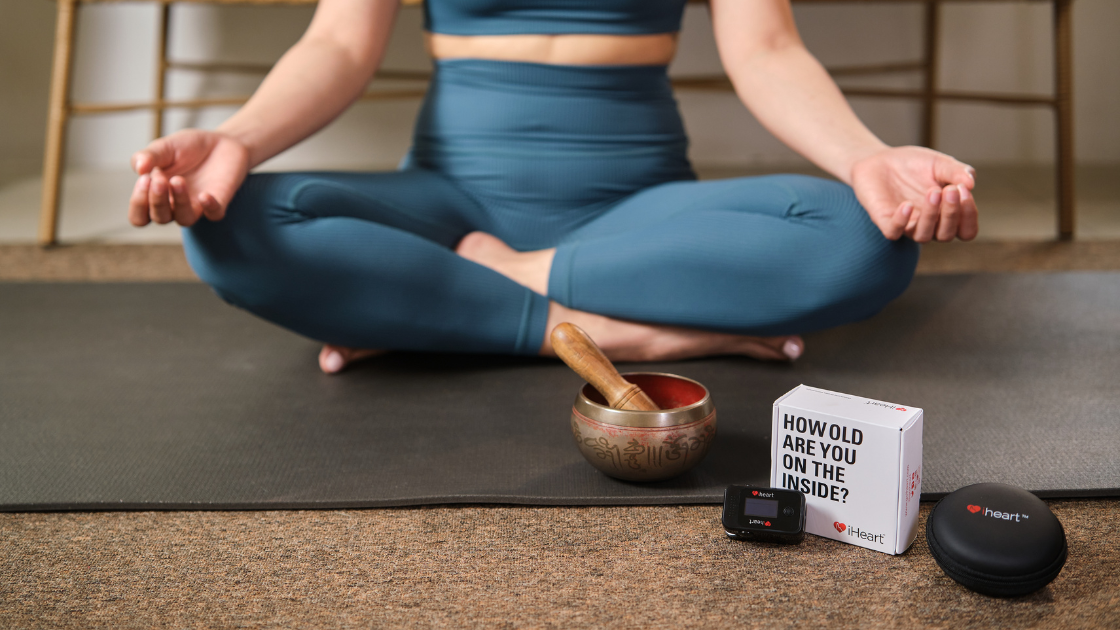When we talk about heart health and heart disease, many of us assume that it’s mostly older males who are at risk. But heart disease significantly affects women, too. Unfortunately, many women believe myths about heart disease or don't understand the risks they face or what they can do to reduce their risk.
Let’s clear up some of those misconceptions and give you some tips on how to live a healthier lifestyle. If you're not sure what you can do to improve your cardiovascular health or what your risks are, this blog post is for you.
Here are five things every woman needs to know about heart health:
1. Women are more likely to die of heart disease than any other illness.
Cardiovascular disease is the leading cause of death for women over the age of 55 in Canada¹. “Heart disease” can refer to a number of different heart problems, the most common being coronary heart disease. This occurs when the blood vessels that carry oxygen and nutrients to the heart become clogged, potentially leading to a heart attack.
While this statistic is certainly cause for concern, it doesn’t mean that heart disease is always inevitable. In fact, we believe that women can improve their heart health at any age, setting themselves up for longevity and better overall wellness.
2. It’s possible to have heart disease without knowing it.
If you had to guess, would you know whether you have heart disease? Do you feel unusually fatigued? Do you get shortness of breath when exercising? Or do these things only happen after a long day of work and then go as fast as they came?
The truth is that just because everything seems fine doesn't mean everything is fine. Many people with cardiovascular disease have no symptoms at all or don't recognize them. Sometimes, symptoms are mistaken for something else – like feeling "just tired." Plus, women often experience very different symptoms than men when experiencing issues with their heart.
The best way to find out if you have heart disease is to get tested.
3. You need to be your own heart health advocate.
Unfortunately, women don't always get the same medical attention men do when it comes to heart disease. Women often say they feel ignored or dismissed by their doctors when they bring up concerns about their heart. And because men are more likely than women to have heart attacks as a result of blocked arteries, doctors may wrongly assume that any symptoms or discomfort felt by women are not related to heart disease.
That’s why it’s important to be your own heart health advocate, taking your health into your hands and speaking up if you have any concerns about your heart.

4. Simple lifestyle changes can have a big impact on heart health
The great news is, there are many things you can do to improve your chances of living a long and healthy life without cardiovascular disease, including:
- Eating a healthy diet. Include plenty of fruits and vegetables in your meals, and choose whole grains instead of refined ones for added fiber. Make sure you get enough protein from lean sources such as fish or skinless chicken breast, and avoid processed trans fats. Don't forget about heart-healthy fat sources, such as nuts, flaxseed oil, and olive oil!
- Exercising regularly. Aim for at least 30 minutes of moderate activity on most days of the week — this can include walking briskly outside if weather permits. If you can’t go outside, maybe try dancing around your home while doing chores, or spend time playing with your children. Finding an activity you enjoy will help you stay moving so that your heart doesn’t suffer damage over time.
- Managing stress and staying positive. Did you know that there’s a connection between optimism and heart health? Part of this connection is due to the fact that people are more likely to engage in heart-healthy behaviors if they’re optimistic. Plus, maintaining a positive attitude can also lead to lower levels of cortisol, reducing the frequency of blood-pressure and heart-rate spikes as a result.

5. Getting tested is the first step to better heart health.
Do you know how old you are on the inside? Your internal age can be a good indicator of how healthy your heart is. Understanding the current health of your heart is the first step you can take towards improving your cardiovascular and overall wellness.
The iheart device and family of apps give you the power to know where your internal health stands, and see, in real-time, how positive lifestyle choices (e.g. increased activity, a healthy diet) improve your scores. While you should always see a doctor if you have concerns about your heart, the iheart device helps put your holistic wellness back in your own hands and is an excellent complement to your doctor’s tests and advice.
Start lowering your risk of heart disease with iheart
Heart disease is one of the most common causes of death in Canada, affecting both men and women. The good news is that there are things we can all do to lower our risk! Eating well and getting regular exercise are both key parts of a healthy lifestyle – plus they'll help keep your body strong, so that when something goes wrong with your heart, it has more muscle fibers available for repair or replacement by other cells.
Now is the time to start your journey towards a longer, healthier life. The iheart device and family of apps are ready to empower you and provide real-time feedback on your internal age as you implement positive lifestyle changes.
Sources






Share:
What makes the iheart device different from other oximeters?
Cardiovascular Health Problems Are Increasing – Here’s The Tech You Need to Prevent Them